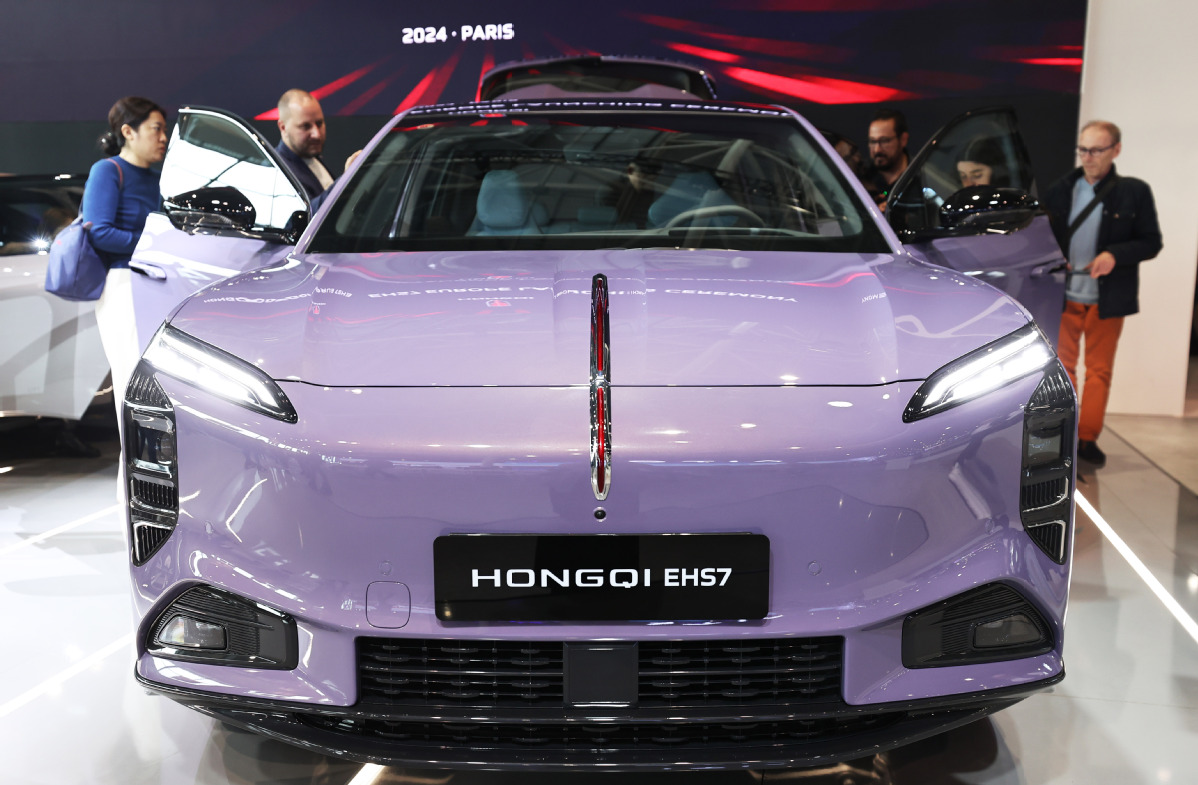EU's selective approach will hinder fair solution, industry body says

The European Union's move to conduct separate price commitment talks with specific Chinese companies will jeopardize the foundation of negotiations and erode mutual trust in the EU's anti-subsidy probe against Chinese electric vehicles, said industry representatives on Wednesday.
Despite China's steadfast commitment to finding a solution through dialogue, the European Commission, the EU's executive arm, has not sufficiently addressed the core concerns of both Chinese as well as European industries. This has led to significant differences and prevented a mutually acceptable solution from being reached, they said.
Holding separate price commitment discussions with selected Chinese companies will result in differential treatment among these companies, potentially leading to substantial adverse consequences and hindering fairness, said an official from the Beijing-based China Chamber of Commerce for Import and Export of Machinery and Electronic Products (CCCME).
This kind of action could delay progress in talks and divert the focus of negotiators from both sides, said the official.
A total of 12 Chinese companies, including Zhejiang Geely Holding Group and SAIC Motor Corp Ltd, have already authorized the CCCME to propose a price commitment plan that represents the overall position of the industry.
Since Sept 20, China and the EU have engaged in eight rounds of intensive consultations, achieving significant progress in certain areas concerning the EV tariff issue.
However, there remain significant differences between both parties regarding a transition period, the temporary suspension of implementation and the minimum product price limit, according to the CCCME.
As consultations have not yet reached a solution acceptable to both sides, China has formally invited the EU side to send a technical team to the country to continue a new round of consultations, the Ministry of Commerce said in an online statement last week.
The EU voted in early October to implement definitive tariffs on EVs manufactured in China. Although the EC said it had secured necessary support from member states, 12 EU members abstained from the vote and five voted against the decision.
Representatives from Chinese auto companies said that if the EC truly aims for a mutually acceptable solution, it should demonstrate sincerity in the negotiations.
"Compared to other types of products, such as consumer goods and commodities, the China-EU talks on EVs are highly complex due to their nature as intricate mechanical and electrical products," said Zhang Xiang, an auto industry researcher at the Beijing-based North China University of Technology.
These talks involve considerations like product models, sales channels and ongoing product upgrades, said Zhang.
China's foreign trade with the EU amounted to 4.18 trillion yuan ($587.4 billion) in the first three quarters of 2024, up 0.9 percent year-on-year, statistics from the General Administration of Customs show.
China's structure of exported products has been optimized and exports of high-tech equipment jumped over 40 percent year-on-year during this period. China-made new energy vehicles now reach over 170 countries and regions worldwide, according to information released by the GAC and the Ministry of Commerce.
Liu Yonghui, a sales manager at Guangzhou Jetinno Intelligent Equipment Co Ltd, a coffee machine manufacturer in Guangzhou, Guangdong province, said that despite the current slowdown in global economic growth and the rise of protectionism and unilateralism, Europe remains the company's most important overseas market.
"Moreover, markets in Asia, the Middle East and South America have also been growing quickly over the past two years," he added.
zhongnan@chinadaily.com.cn

